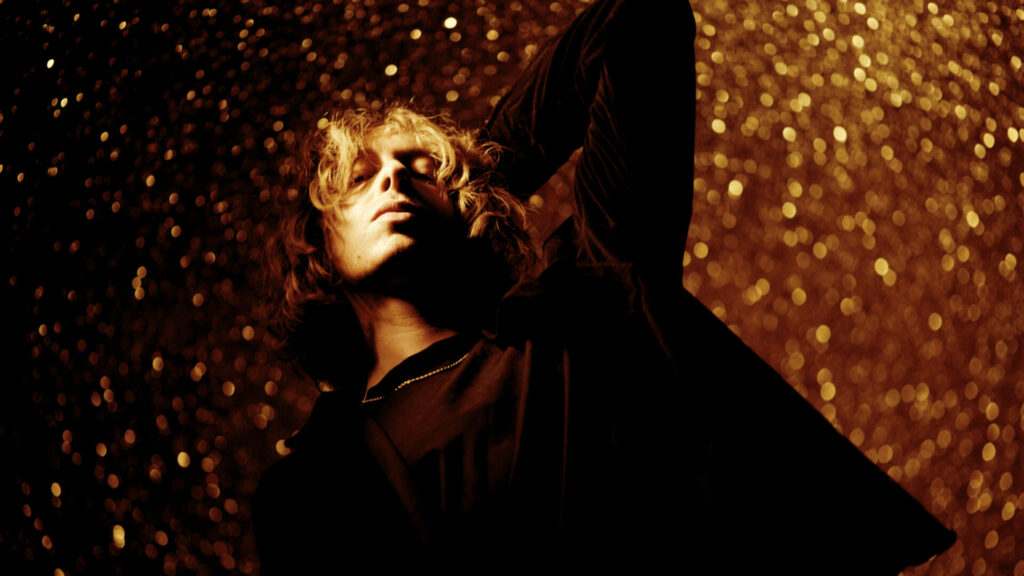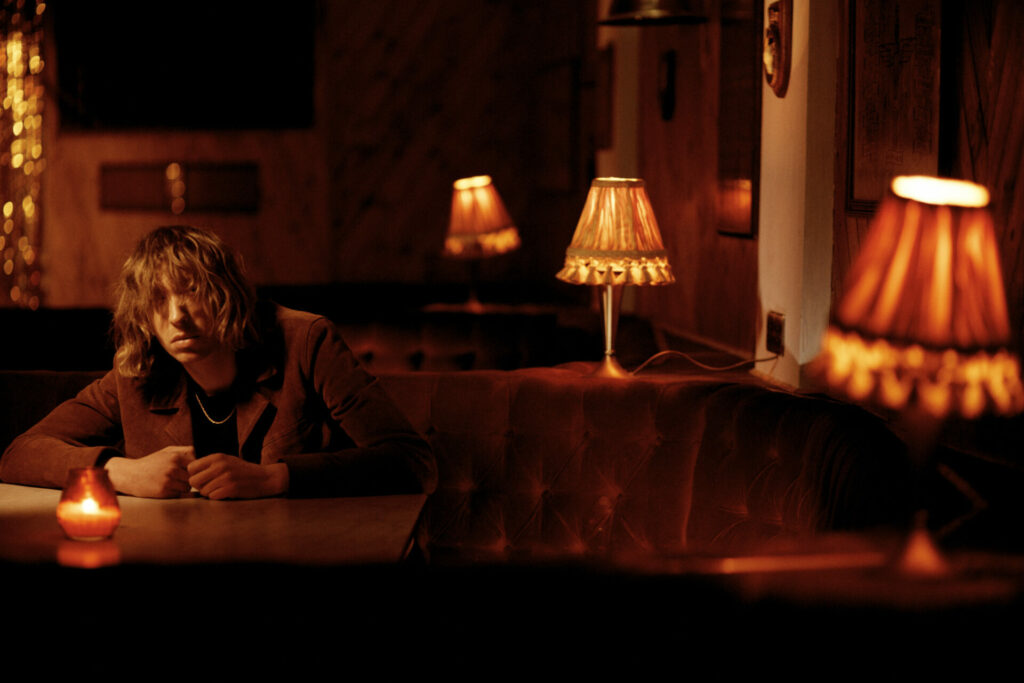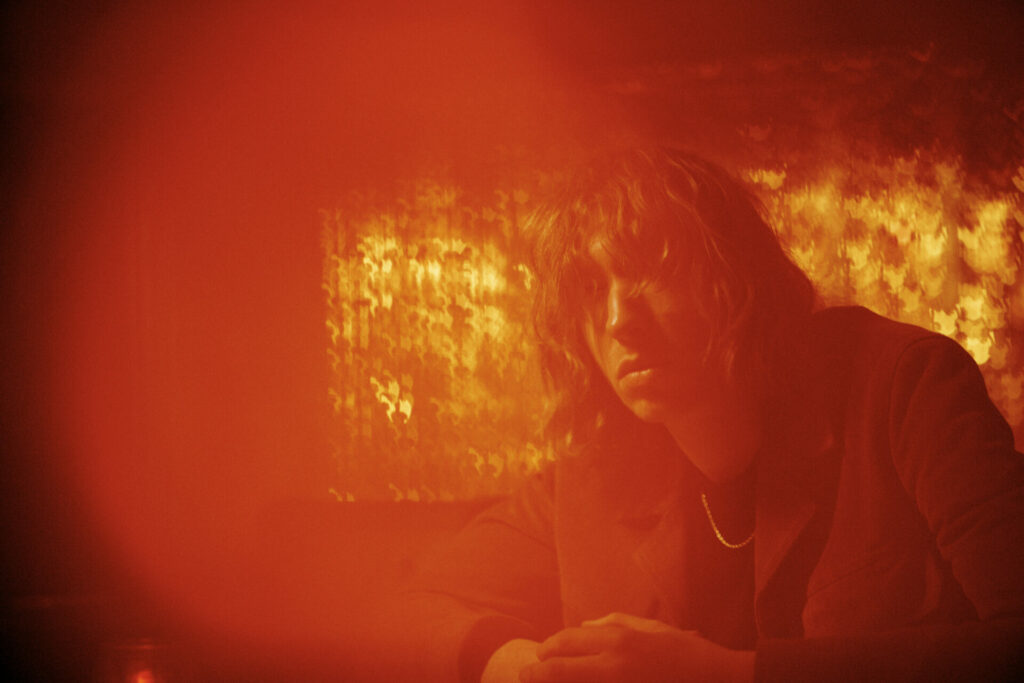UK electronic musician Daniel Avery on seeking his truth
The musician, producer, and DJ’s fifth album ‘Ultra Truth’ unites his past with his present, and offers a window into his future
By Selim Bulut

When Daniel Avery was recording his new album Ultra Truth, there was a mantra that he and his collaborators kept returning to: Let’s set this record on fire.
“Let’s fray every edge and make it sound like it’s fully alive,” Avery says, speaking over the phone from his home in London. “It’s ablaze, this record.”
Ultra Truth is Daniel Avery’s fifth album, and caps off a particularly fruitful period for the UK electronic musician and producer. He’s released four full-lengths in the past four years alone, but it’s Ultra Truth — with its scorched edges and its cathartic expressions of emotion — that he believes is the one that he’s been building towards since he first started releasing music under his own name 10 years ago. “This is the sound I’ve wanted to make over the past decade,” he says, “and I’ve finally realised it.”
If anything guided the incandescent sound of Ultra Truth, it’s not the leftfield techno you’re likely to hear in one of Avery’s DJ sets, but the alternative rock bands of his teenage years. These are spiritual influences, rather than sonic ones — Ultra Truth is firmly an electronic album, not a rock-meets-rave record — but it’s the intensity, passion, and strength of feeling that Avery felt listening to these artists that shapes the album’s energy and atmosphere. Growing up in Bournemouth, Avery was drawn to the heavier end of guitar music, and was the sort of kid to have posters of Kurt Cobain, the Deftones, the Smashing Pumpkins, or Nine Inch Nails on his wall. His first taste of electronic music was equally potent. He recalls that the first CD single he ever bought was The Prodigy’s ‘Breathe’. “The Prodigy seemed like an extension of all that heavy guitar music — but a futuristic version,” he says. “My dad took me to see them on the Fat of the Land tour in 1997. I was absolutely captivated. Everything about them — the artwork, the videos, the punky attitude, the heaviness, the speed — I didn’t know what club or rave music was at the time, but it really spoke to me.”
His music fandom turned into a full-blown obsession over the subsequent years, yet even as he began experimenting with a bass guitar and four-track recorder in his bedroom, he never saw it as something he’d take seriously, let alone sustain a career. “I never had any dreams of doing it outside that room,” he says. “I wasn’t dreaming of where I am now, that’s for sure. If I could go back in time and tell my younger self, he wouldn’t understand what happened.” Why not? He points to the lack of prominent musicians to have come out of Bournemouth, along with the fact that none of his other family members were musical. “My mum and my sister are both talented artists: my sister is a make-up artist, my mum has always painted and drawn,” he says. “But music? No. All of my family are music heads — my dad in particular has a huge record collection — so that’s where the love came from, but I was the first to adopt making music as my thing.”
“This is the sound I’ve wanted to make over the past decade, and I’ve finally realised it”
— Daniel Avery
More than anything though, it was his infatuation with music as a fan that stopped him from seeing himself as an artist. Artists, in his eyes, were operating several levels above a mere mortal such as himself. “Back then, musicians — and not just your standard rock star, but any musician — felt like an elevated individual to me,” Avery says. “It felt like every musician I ever watched or read about was operating on a higher plane — one that I didn’t understand. I was so in awe of it that I didn’t really realise that I could do it too.”
That was the humdrum nature of life in Bournemouth. “The majority of the town caters to hen parties, and had little of a clubbing scene out of Top 40 clubs and retro nights,” he says, but “the positive angle is that while it was a fairly sleepy place, there were very small pockets that offered solace.” He met some like-minded souls, many of whom he remains friends with today, and they would make pilgrimages to gigs and clubs in Southampton and Portsmouth, as well as London for bigger events. “There were enough of us to feel like we had a small, alternative corner,” he says. “Being part of that community, in the early days of the internet, meant that in order to collect music or records, it still took a large amount of dedication and effort. It was about waiting for a new issue of a magazine to come out, and going to CD shops and swapping and copying things for your mates. A Smashing Pumpkins live video would take four days to download, and you can’t wait for it. I think all it did was stir the fandom even harder.”
What he knew deep in his bones is that one day he’d move to London. It was in the city that he got his first real taste of club culture when he went to Trash, the weekly alternative dance night run by Erol Alkan at The End. “That was probably around 2002 or ’03”,” he says. “I filed Erol alongside these rock stars that I was in such awe of. He DJed like a rock star, with all the bravado and passion and energy of a live performer. Waking into Trash felt like walking into another universe. It’s what I’d always wanted clubs to feel like.” The popularity of Trash in the Noughties led to many similar nights appearing up and down the country, and in Bournemouth there was a Thursday event called Project Mayhem. “It was a night where you could play Kraftwerk and Throbbing Gristle alongside The Stooges and new bands from the time like Interpol and The Strokes, but also embracing a lot of the exciting pop music at the time — so Missy Elliott and the Timbaland productions — and throwing it all together and it all making sense,” Avery explains. “I’m keen to stress it was not an indie night. It played some indie music, but it was far more exciting than that. It was on Thursdays and I’d hang around there every week.”

The promoter, Matt Clark, also managed a record shop in town that Avery used to frequent. One day, he walked in and saw a poster advertising that Project Mayhem needed a warm-up DJ. He ran home, wrote down a playlist, and got the gig. “Until that moment I’d had no idea I wanted to DJ,” says Avery. “It hadn’t even entered my mind at all. But the second I saw that, a fire got lit inside me and I knew I had to get that job. I just knew it. I don’t think I’ve ever felt anything so strongly since. I was opening up the first hour of a Thursday for no money, just playing interesting music. Without that, I don’t know if I’d be sat here talking to you.” Years later, Clark let Avery in on a secret: “He told me that he wanted me to get that job because he thought I had good taste based on what I was buying at the record shop and what I was asking about at the clubnight. When he saw me enter the shop, he quickly printed out that poster so that I could see it. It’s one of those magical, cosmic moments. I didn’t know that until recently.”
DJing became a hobby for Avery — one that he was passionate about, certainly, but still just a hobby — until he moved to London in 2007 and started to take it more seriously. He built up connections in the city’s alternative club scene, working in the Pure Groove record shop in Farringdon and DJing in the city and up-and-down the UK. When the record shop closed down after its building was redeveloped, Avery reasoned it was time he properly focused on his music. He took his own name as his artist alias, honed his style of circuit-frazzled dance music across a series of remix commissions, and started to DJ out more regularly, including at dance music institutions like the Fabric nightclub and Bugged Out! parties. Some of his heroes started to take notice too, like the late, genre-traversing DJ Andrew Weatherall, who worked out of the studio next to Avery’s and once memorably said of the younger musician: “He makes gimmick-free machine funk of the highest order.”
“That nod confirmed everything for me,” Avery reflects. “That was around 2011. I’m proud of stuff that came before it, sure, but that was the time I felt like I had something to offer.” A self-released DJ mixtape he put out in 2012 called Divided Love asserted his musical identity, the A-side capturing his club music interests, the B-side his taste for drone, ambient, and experimental sounds. “I made 100 copies of that tape,” Avery says, “and that’s how we got to where we are now.”
“It took five years to get to the stage where I was able to say to myself, ‘Stop focusing on what you can’t do. What are the things you can offer?’”
— Daniel Avery
The melding of club music and drone influences were all over his debut album, 2013’s Drone Logic. It was released on the Phantasy Sound label, run by Erol Alkan, who’d asked Avery to be a part of the imprint in its early days. The album caught fire with all sorts of different audiences, celebrated equally in the dance music press, alternative titles, and broadsheet newspapers. Suddenly, Avery was catapulted into the life of an international touring DJ — but for someone who deified musicians so much when he was younger, being cast into this role himself took some getting used to. “I got completely dragged along by the runaway train of it all,” he sighs. “It was a difficult time, particularly for a youngster. I’m not complaining about anything, because I’ve had an unbelievably fortunate hand in life, but that world is such a whirlwind. It’s a constant battle between the fast-paced glamour and overwhelming excitement, and trying to keep your feet on the ground and maintaining friendships and relationships. I’m in a far healthier place than I was, but that’s from 10 years of doing it. I’ve fallen into many of the pitfalls that are very obvious for everyone to see, and they can be tough to work your way out of.”
Creatively, he felt immobilised too. “I did not know what to do next,” he says. “DJing was how I was defining myself, and I was attempting to make — but also failing to make — techno records of my own. I was leaving the studio most days completely disheartened. I knew I didn’t want to make Drone Logic Pt. 2 because my head was in a different place, yet I couldn’t make a club record to save my life. I just got stuck.” In the end it would be five years before his next album. “It took five years to get to the stage where I was able to say to myself, ‘Stop focusing on what you can’t do. What are the things you can offer?’”
What Avery had come to realise was that he was constantly searching for quiet amid the madness of touring. 2018’s Song for Alpha, his second long-player, became an album about finding that silence among the noise. The process of making it seemed to unlock something inside of him. “Once I’d overcome the fear that I would make a statement that was ‘incorrect’, there was no stopping me,” he says. “Since then I’ve felt utter freedom.” Three more albums followed in fairly quick succession. 2020’s Illusion of Time was an ambient record made with Nine Inch Nails’ keyboardist Alessandro Cortini, completed after Avery ended up opening for his teenage heroes on their 2018 North American tour. A few months later, Love + Light collected tracks produced during the year’s on-off Covid lockdowns. 2021’s Together in Static was also made while Covid was keeping clubs closed; it written to be performed live (something he’s doing more often nowadays, rather than just playing DJ sets) at a sit-down concert at Hackney Church, resulting in a solemn and hymnal sound.

Simultaneously, he was working on what would become Ultra Truth. The process began four years prior to its release, and even during its nascent formation, he could tell that he was striking upon something he’d been searching for since he first started making music. The Ultra Truth title came from a Nineties rave flyer that Avery found, but the phrase made sense to him in the present. “The two words together fit so aptly,” he says. “Sonically speaking, I really feel like so much of it stems way further back than even before Drone Logic. This is a real statement I’ve wanted to make for a long time.”
In its snippets of human voices, Ultra Truth was inspired by albums he loved growing up: “The first Wu-Tang Clan album or Rated R by Queens of the Stone Age or The Holy Bible by the Manic Street Preachers. I wanted this album to feel like a wider world than simply a record.” To that end, he brought in a raft of collaborators. There’s Kelly Lee Owens — a former associate, having been the voice of Drone Logic a decade earlier, who “has since become a bona fide superstar”. There’s the DJ and producer HAAi, a good friend he’s made over the years, who has vocals on two tracks. He wanted to work with Johnnine Standish as her band HTRK had “soundtracked my life in London for 15 years”. Then there are other artists he’s crossed paths with, like Marie Davidson, SHERELLE, and James Massiah. He also credits his studio collaborators — longtime production colleague James Greenwood, AKA Ghost Culture, and industrial techno producer Manni Dee — for encouraging him to go “harder and harder” across the record.
But though they went harder, and though they set the record on fire, there is a softness on Ultra Truth too, like the piano-led album opener ‘New Faith’, and the gentle melodies of title track ‘Ultra Truth’. Then there’s album highlight ‘Lone Swordsman’, a touching tribute to Avery’s old mentor Andrew Weatherall, who had died suddenly in early 2020. Though it appears on the album now, the track was first released as a standalone single all the way back in January 2021, during the height of Lockdown 3.0.
“Lockdown was an important time for me,” Avery reflects. “It forced me to stop that runaway train. When it got halted, I was forced to do two things. One was to take a long, hard look in a pretty ugly mirror at some of the things that were happening in my life. With that came the realisation that it was not the touring that was making me happy — that was probably tearing strips off my physical and mental health — but that I was still able to make music. It was that that made me happy, and always has done.”
There was something else, too. “In addition to that, I fell in love very deeply over lockdown,” he says. “I started to feel like myself again. That’s the Ultra Truth.”
Daniel Avery performs live at London’s HERE at Outernet on 2 December 2022.
